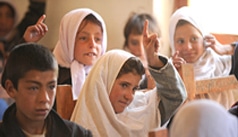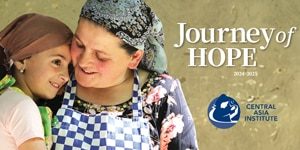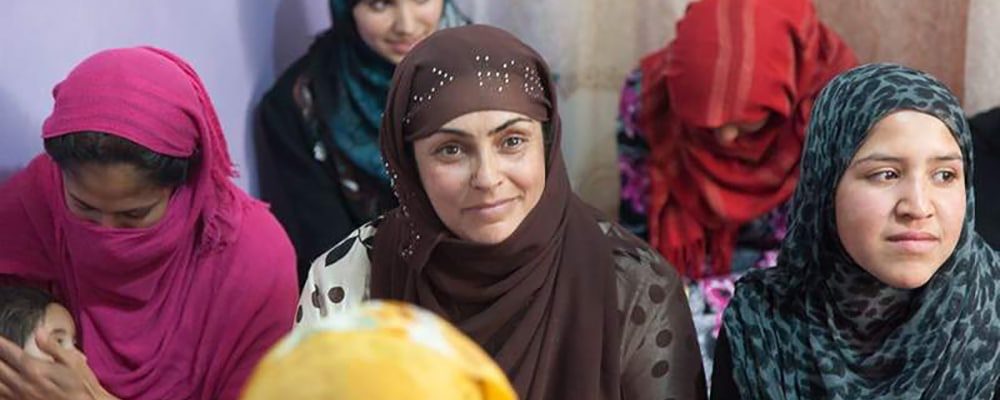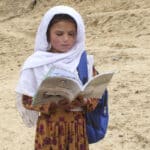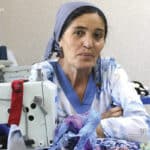Today is Afghanistan’s Independence Day: 100 Years of Freedom, 40 of Them at War
Today celebrates 100 years since Afghanistan gained its independence. December will mark 40 years of violent conflict. And, if the most optimistic projections are believed, 2019 could be the first year of peace since then.
The eighth and possibly final round of talks between the United States and Taliban concluded earlier this month, with U.S. Special Representative for Afghan Reconciliation Zalmay Khalilzad tweeting, “if the Taliban do their part, we will do ours, and conclude the agreement we have been working on.” The agreement will open negotiations between Afghan parties over the country’s political future, providing a chance for lasting peace after four decades of violent conflict. However, as expectations rise daily for a public announcement of the agreement, preparations for these negotiations must ensure that the peace agreement is sustainable.
Studies have shown that an inclusive process is an integral factor to sustainable peace. UN Women reports that women’s participation in peace talks improves the chances of a successful agreement by 64%. Their inclusion also increases the durability and the quality of a peace agreement. When women participate, the resulting agreement is 35% more likely to last at least 15 years.
Despite this evidence, Afghan women have been largely absent from peace efforts. Of the twenty-three known talks between the Afghan government and the Taliban from 2005-2014 (none were official), women were present at the table on only two occasions. In the current effort as well, their voices have been absent. Afghan women fear that a peace deal with the Taliban could reverse significant gains made over the past 18 years in securing women’s rights and bring back the Taliban’s oppressive policies towards women.
While women’s inclusion improves the chance of achieving sustainable peace, their exclusion can be detrimental. Research on negotiations shows that women raise issues which increase the durability of an agreement but are often left out by men. Further, because women have access to spaces in society which men do not, they offer unique insights to negotiating teams. Without women, the critical issues they raise and information they bring, peace agreements are of worse quality and therefore ultimately less successful.
In response to mounting pressure, the United States, Afghan government, and Taliban have taken steps towards women’s inclusion. Building on increasingly explicit statements from the U.S. negotiating team on the need for women’s representation, U.S. Congress introduced the “Afghan Women’s Inclusion in Negotiations Act” last week, reaffirming Washington’s commitment towards inclusion called for in the White House’s June 2019 strategy on Women, Peace and Security. In February, Afghan First Lady Rula Ghani hosted consultations with 3,000 women to engage women and women’s perspectives in the peace process. Further, prominent women who met with the Taliban on the outskirts of the failed Intra-Afghan dialogue in April noted the Taliban’s genuine desire to engage.
That said, it is far from certain that women’s place in the peace process has been secured. In light of the impending United States withdrawal agreement, Afghan women worry that the United States may not have the leverage or will to ensure their meaningful engagement in a peace process. Contradictory statements made by the Taliban also raise legitimate questions whether they have any real intention of ensuring space for women in negotiations or safeguarding hard-won rights. With the chance of sustainable peace at stake, more must be done.
The most important step is for parties to the conflict and the international community to internalize the opportunity that inclusion presents to peace and the threat that exclusion poses. The evidence is clear. With women’s meaningful inclusion, the chances of a durable peace agreement are greatly increased. With exclusion, the process risks losing support from half of the population. As Rahima Jami, a member of the Afghan parliament, put it, “Afghan women want peace, but not at any cost.” Inclusion must be placed at the center of the process.
Once this is recognized, various models of inclusion may be employed. First, it is essential that women are included in the official negotiating team. The names of the Afghan national delegation team have not yet been revealed but unofficial lists include women. This delegation should meet with prominent women’s groups and civil society influencers more broadly to gain a deeper understanding of their questions, fears, and desires of a peace process to best represent broader society.
Second, official consultative forums should be constituted for women and other civil society actors to provide input into the negotiations. Running parallel to official negotiations, these consultative forums could provide recommendations on issues under discussion, not only injecting ideas into the process but also creating buy-in from influential players. Similar consultative forums were created in the 2014 Colombia peace process and the 1994 Guatemala process. In Guatemala, negotiating parties took almost all recommendations from the consultative forum into account, either directly or indirectly.
As the Guatemalan and other peace processes have shown, opportunities for public participation must be created. Public hearings, consultations, and panels provide forums for the larger public to connect with and inform the process, creating buy-in, and allowing for representation of the broader public’s views. The UN has already begun efforts to ensure greater inclusiveness by engaging women and communities in remote areas to express their views through radio, social media, and television. Other groups, both domestic and international, should multiply these efforts.
Peace is too important to be left to the fighters. Mothers, wives, sisters, and daughters bear the brunt of conflict and have a clear understanding of both its drivers and costs. With their perspectives and voices in all phases of a process, Afghanistan may achieve a lasting peace for the first time in four decades, raising hopes for the next 100 years of independence.
Emily Ashbridge is a researcher on South Asian affairs based at the United States Institute of Peace in Washington D.C.
